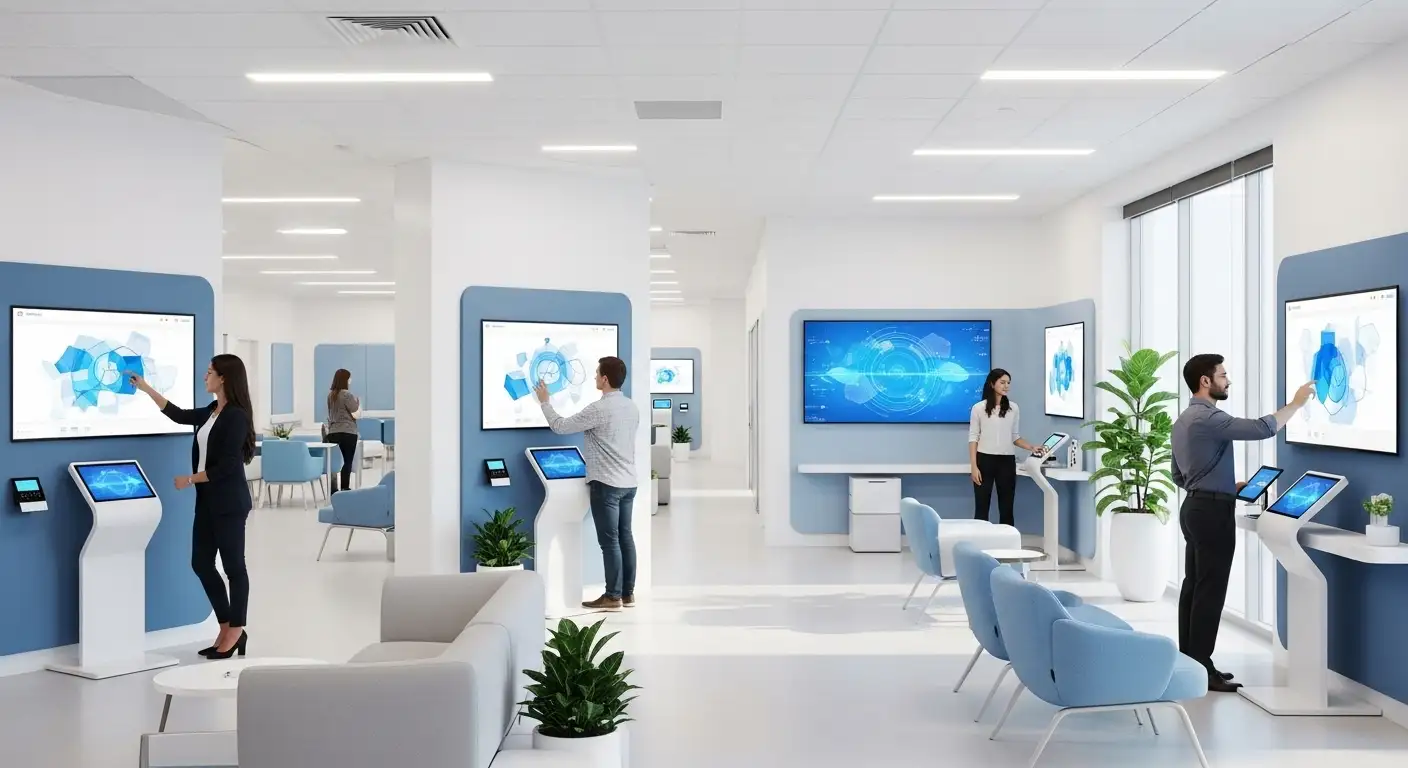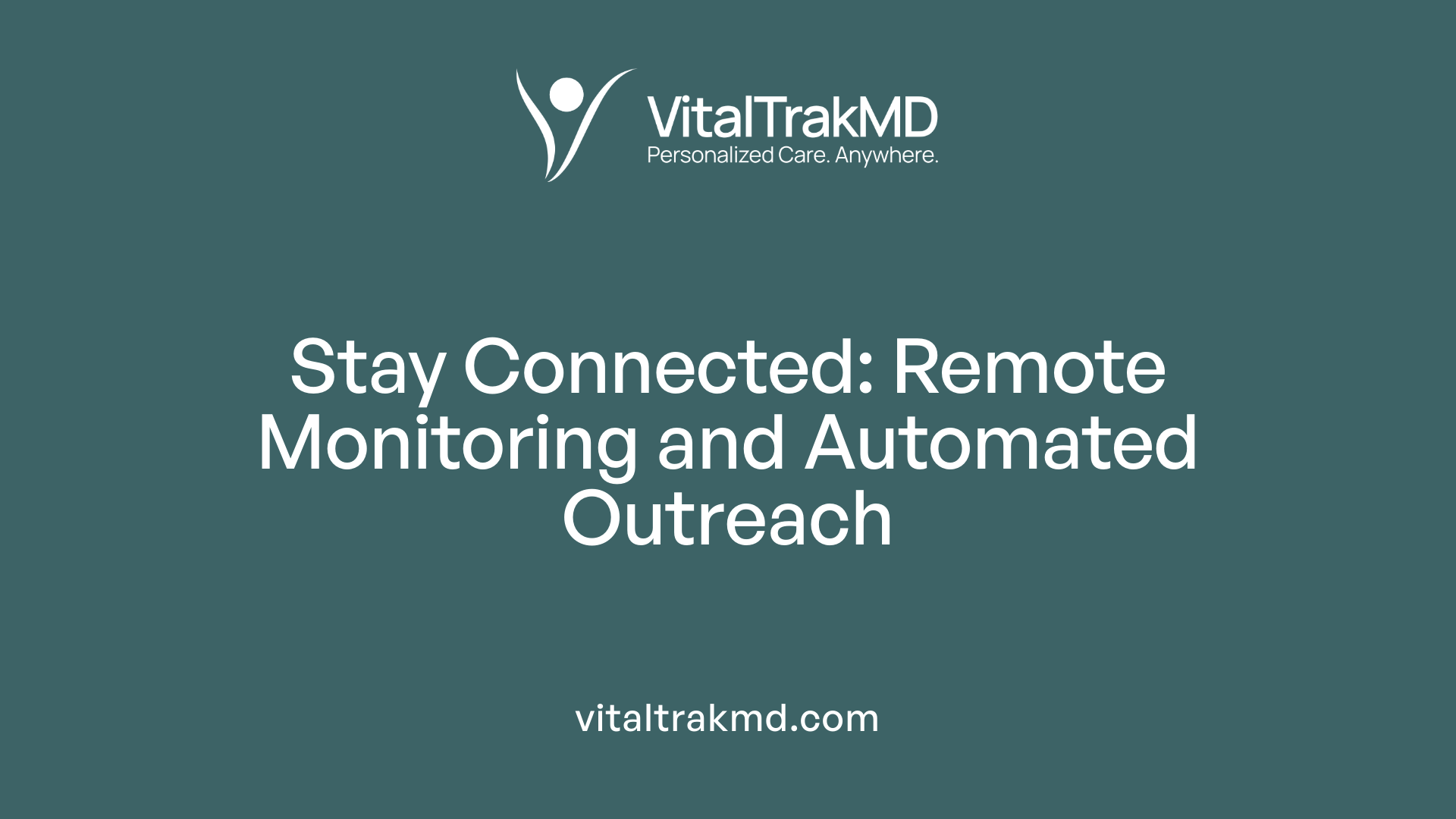Why Hybrid Programs Improve Communication Between Patients and Providers

The Evolution of Patient Communication Through Hybrid Care Models
As health systems increasingly adopt hybrid care programs that blend digital tools with face-to-face coaching, communication between patients and providers is becoming more flexible, frequent, and personalized. This evolution is particularly significant in weight management and wellness programs, where ongoing engagement and tailored support are critical. Hybrid models not only improve the accessibility and convenience of healthcare but also foster more meaningful interactions, enabling better health outcomes through coordinated efforts and continuous monitoring.
How Hybrid Wellness Programs Support Effective Weight Loss

Core Components of Intensive Lifestyle Interventions
Intensive lifestyle interventions (ILIs) form the foundation of effective weight loss programs. These interventions focus on setting clear weight loss goals, enabling patients to self-monitor their dietary intake and physical activity, and providing ongoing coaching support. The continuous tracking and feedback loop encourages sustainable behavior change, essential for long-term success.
Behavioral Coaching and Technology Support
Behavioral coaching, both remote and in-person, enhances patients' motivation and accountability. Hybrid wellness programs leverage technology platforms such as electronic health records (EHRs) and patient portals like MyChart to facilitate communication and data sharing. This digital infrastructure supports personalized, longitudinal coaching and automated outreach, making lifestyle modifications both practical and scalable within primary care.
Patient-Centered Personalized Plans
Personalized care plans tailored to individual needs are a hallmark of hybrid wellness programs. These plans often include nutritional guidance, medication options, and continuous behavioral support. By integrating nurse-led telephonic coaching and adaptive messaging, programs increase patient engagement and adherence, crucial factors driving better weight loss outcomes.
Digital Self-Monitoring Tools
Digital tools play a pivotal role in self-monitoring weight and health indicators. Wireless scales that transmit real-time data via cellular networks directly into the EHR enable close tracking of progress. Such technological integration allows healthcare providers to monitor patients remotely, intervene early if issues arise, and support lifestyle changes without frequent in-person visits.
Integrating Hybrid Programs in Primary Care
Hybrid models combining face-to-face and virtual care remove barriers like transportation difficulties and waiting times, offering patients the convenience of routine check-ins from home. Early studies highlight the feasibility and acceptability of such programs in primary care, underscoring their potential to sustainably support weight management initiatives.
| Aspect | Description | Impact on Weight Loss Outcomes |
|---|---|---|
| ILIs Core Components | Goal setting, self-monitoring, coaching | Promotes sustainable lifestyle changes |
| Behavioral Coaching & Tech | Longitudinal support via EHRs, portals, adaptive messaging | Increases engagement and accountability |
| Personalized Plans | Tailored nutritional, medication, and support strategies | Enhances adherence and results |
| Digital Self-Monitoring | Wireless scales and remote data integration | Enables timely interventions and progress tracking |
| Hybrid Care Delivery | Combines in-person and remote coaching | Improves accessibility and patient satisfaction |
Enhancing Communication Through Hybrid Care Delivery
What Does Hybrid Care Delivery Involve?
Hybrid care delivery combines traditional in-person visits with virtual care options, such as telehealth consultations and remote monitoring. This model offers patients multiple ways to connect with healthcare providers, adapting to individual preferences and needs.
How Does Hybrid Care Increase Accessibility and Convenience?
By offering virtual visits alongside face-to-face appointments, patients can choose the format that best fits their schedules and circumstances. This flexibility is especially beneficial for those with mobility limitations, busy lifestyles, or those living far from healthcare facilities.
Can Hybrid Care Reduce Waiting Times and Transportation Barriers?
Yes, hybrid care models help decrease waiting periods by facilitating quicker virtual consultations that don't require travel. This approach eliminates transportation challenges and enables patients to receive timely care without the stress of commuting or arranging transport.
What Flexible Options Do Hybrid Models Offer for Follow-ups?
Patients benefit from more frequent and convenient follow-up opportunities through virtual means such as video calls or phone check-ins. These ongoing consultations support continuous monitoring, early detection of issues, and better management of chronic conditions, making care more patient-centered.
The integration of hybrid care not only improves communication between patients and providers but also enhances the overall healthcare experience by making it more accessible, efficient, and tailored to patient needs.
Leveraging Technology for Continuous Patient Engagement and Monitoring

How can care programs improve overall health and support weight management?
Care programs enhance health outcomes and support effective weight management by integrating personalized interventions with continuous patient monitoring and support. These programs utilize behavioral coaching combined with technology tools to keep patients engaged and motivated.
Integration of wireless scales and other monitoring devices
Wireless scales that transmit patient weight data via cellular networks enable effortless tracking of progress. These devices automatically send data to healthcare providers, reducing the burden on patients and providing reliable, real-time information.
Use of electronic health records for data transmission
Electronic Health Records (EHRs) such as MyChart serve as centralized platforms for storing and transmitting weight and other health data collected remotely. The seamless connection between wireless devices and EHRs facilitates timely feedback and allows healthcare teams to monitor trends without requiring frequent office visits.
Automated outreach and personalized messaging
Automated, EHR-based outreach programs send customized messages and reminders that encourage consistent self-weighing and participation in lifestyle interventions. When supplemented by nurse-led telephonic coaching, these messages help increase engagement, motivation, and adherence to weight loss goals.
Remote patient monitoring for chronic conditions
Beyond weight management, remote patient monitoring extends to chronic disease management by collecting vital signs continuously. This capability allows healthcare providers to detect early warning signs, intervene promptly, and prevent complications, ultimately supporting better overall health.
Through combining wireless monitoring technologies, EHR data integration, automated yet personalized communication, and telehealth coaching, care programs create a comprehensive support system. This system fosters ongoing patient engagement, facilitates early intervention, and dynamically adapts to patient needs, resulting in more successful weight management and improved health outcomes.
The Role of Stakeholder Engagement and Patient-Centered Approaches in Sustaining Hybrid Programs

Cocreation of Intervention Components
Hybrid weight loss programs thrive when the components are developed collaboratively with input from stakeholders. This cocreation process ensures the interventions align closely with patient needs and preferences. It also fosters greater buy-in from patients and healthcare providers, which is crucial for long-term success. Engaging stakeholders such as patients, clinicians, and support staff allows these programs to be tailored for realistic implementation within primary care settings.
Importance of Stakeholder Input for Acceptability and Sustainability
Ongoing stakeholder involvement improves both the acceptability and sustainability of hybrid care models. When participants feel that their voices influence program design and delivery, they are more likely to stay engaged. This buy-in drives improved adherence to lifestyle interventions and encourages program persistence beyond initial trial phases. Moreover, stakeholder feedback helps identify and address challenges early, strengthening the program's durability and relevance.
Personalized Support Mechanisms and Adaptive Messaging
Personalized, adaptive messaging plays a critical role in maintaining patient engagement. Customized communications respond to individual behaviors and progress, providing timely encouragement or guidance. This approach helps sustain motivation for weight loss goals and healthy lifestyle changes. Coupling these messages with technology platforms, such as patient portals linked to electronic health records, can streamline the delivery of personalized recommendations.
Role of Nurse-Led Telephonic Coaching
Nurse-led telephonic coaching is a vital support mechanism within hybrid programs. These coaching sessions offer personalized attention, helping patients stay accountable and troubleshoot barriers to self-monitoring behaviors like weighing and activity tracking. Nurses provide empathy, education, and motivational support, which can increase participation in available lifestyle resources. This human connection complements digital tools, enhancing patient experience and improving outcomes in weight management.
Post-Discharge and Chronic Condition Support Through Hybrid Care Models

How do post-discharge virtual follow-up and reminders support patient recovery?
Post-discharge virtual follow-ups and reminders provide patients with continuous care after hospitalization. These telehealth services help manage recovery by ensuring patients adhere to treatments and are monitored for any signs of complications. This ongoing virtual support reduces the risk of hospital readmissions by catching potential issues early and reinforcing care plans remotely.
In what way does remote patient monitoring aid in reducing hospital readmissions?
Remote patient monitoring allows patients with chronic conditions to share vital health data in real-time with their healthcare team. Devices such as wireless scales and other monitoring tools transmit information directly to electronic health records (EHRs), enabling prompt interventions when necessary. This constant surveillance helps detect worsening conditions early, thus preventing emergencies and lowering hospital readmission rates.
How is continuity of care sustained through hybrid models?
Hybrid care models combine virtual consultations with in-person visits, creating a seamless experience that maintains patient engagement and treatment adherence. Patients can receive frequent check-ins either remotely or face-to-face, tailored to their needs. This flexibility supports ongoing management of chronic diseases and post-discharge recovery, fostering sustained continuity of care without overwhelming patients with unnecessary office visits.
What are some examples of virtual services designed for chronic disease management?
LifeBridge Health’s Centre for Virtual Care offers a broad spectrum of telehealth services such as:
- Virtual Primary Care
- Virtual Diabetes Management
- Virtual Medical Weight Loss Programs
- eVisits for minor or urgent care needs
- Remote Patient Monitoring for chronic conditions
- Post-Discharge Telehealth Support
These programs deliver personalized care plans, nutritional guidance, medication management, and continuous monitoring to meet the complex needs of patients managing chronic illnesses. They exemplify how hybrid care expands access and improves health outcomes through technology-enabled solutions.
Hybrid Care as the Future of Effective Communication in Wellness and Weight Management
Hybrid healthcare programs, by merging in-person interactions with virtual technologies, significantly enhance communication between patients and providers. They provide greater flexibility, improve patient engagement through continuous support, and facilitate personalized care based on real-time data. These programs are particularly effective in weight management and chronic disease care, where sustained motivation and early intervention are crucial. As healthcare systems continue to refine and expand hybrid models, they hold the potential to transform patient-provider communication, leading to improved health outcomes and a more patient-centered approach to wellness.
References
- Hybrid Health IT and Telehealth–Delivered Behavioral ...
- How the Hybrid Care Model is Transforming Patient Access
- How the hybrid healthcare model is transforming patient ...
- The Mayo Clinic Diet: A weight-loss program for life
- Choosing a Safe & Successful Weight-loss Program - NIDDK
- Employee Wellness Programs for Weight Loss
- Weight Management - Health Care & Benefits Division
- CDC-Recognized Family Healthy Weight Programs
- Real Appeal weight management program
Recent articles
Want to Feel Better and Live Healthier?
Join hundreds of patients taking control of their health with personalized care that fits their life – not the other way around.
Rated 4.8/5 by 32+ customers







